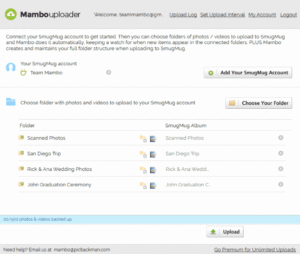-
Table of Contents
“Maintain your work-life balance, keep your WhatsApp group-free zone!”
Introduction: Preventing your bosses from adding you to a work group on WhatsApp can help maintain a healthy work-life balance and ensure your privacy. Here are some effective strategies to avoid being added to such groups without causing any conflicts or misunderstandings.
Setting clear boundaries with your boss regarding communication channels
In today’s digital age, it is not uncommon for bosses to create work groups on messaging platforms like WhatsApp to facilitate communication among team members. While this can be an efficient way to stay connected and share information, it can also blur the lines between work and personal life. If you find yourself wanting to prevent your boss from adding you to a work group on WhatsApp, it is important to set clear boundaries regarding communication channels.
First and foremost, it is crucial to establish open and honest communication with your boss. Schedule a meeting or have a conversation where you can express your concerns and preferences regarding communication channels. Explain that while you value effective communication, you also value your personal time and privacy. By having this conversation, you can ensure that your boss understands your perspective and respects your boundaries.
When discussing communication preferences, it is important to offer alternative solutions. Suggest using professional communication platforms such as email or project management tools that are specifically designed for work-related discussions. Emphasize the benefits of these platforms, such as their ability to organize conversations and keep work-related discussions separate from personal messages. By presenting viable alternatives, you are showing your boss that you are proactive in finding solutions that work for both parties.
Another effective way to prevent your boss from adding you to a work group on WhatsApp is by setting clear expectations and boundaries. Let your boss know that you prefer to keep work-related conversations within working hours and that you will not be available for discussions during your personal time. This will help establish a healthy work-life balance and prevent work-related stress from encroaching on your personal life.
Additionally, it is important to be assertive when it comes to your boundaries. If your boss adds you to a work group on WhatsApp despite your preferences, politely ask to be removed from the group. Explain that you prefer to use other communication channels and reiterate your reasons for doing so. By standing firm in your boundaries, you are sending a clear message that you value your personal time and privacy.
In some cases, it may be necessary to involve HR or higher management if your boss continues to disregard your preferences. Document instances where your boundaries have been violated and present them as evidence of the need for a change in communication practices. This should be a last resort, but it is important to take action if your concerns are not being addressed.
In conclusion, preventing your boss from adding you to a work group on WhatsApp requires setting clear boundaries and effectively communicating your preferences. By having an open and honest conversation with your boss, offering alternative solutions, and asserting your boundaries, you can establish a healthy work-life balance and ensure that your personal time and privacy are respected. Remember, effective communication is key in any professional relationship, and it is important to advocate for your needs in order to maintain a positive work environment.
Communicating your preferences for work-related communication
In today’s digital age, communication has become easier and more convenient than ever before. With the rise of messaging apps like WhatsApp, it has become common for colleagues and bosses to create work groups to facilitate communication and collaboration. While these groups can be useful for sharing information and staying connected, they can also be overwhelming and intrusive, especially when they are constantly buzzing with messages. If you find yourself in a situation where your bosses are adding you to work groups on WhatsApp that you would rather not be a part of, there are a few steps you can take to prevent this from happening.
First and foremost, it is important to communicate your preferences for work-related communication to your bosses. Let them know that while you appreciate the need for effective communication, you find the constant notifications from work groups on WhatsApp to be distracting and disruptive to your workflow. Be clear and assertive in expressing your concerns, but also be respectful and professional in your approach. It is important to strike a balance between asserting your boundaries and maintaining a positive working relationship with your bosses.
One way to communicate your preferences is to have a one-on-one conversation with your bosses. Schedule a meeting or find a suitable time to discuss your concerns in person or through a video call. This allows for a more personal and direct conversation, where you can explain your reasons for not wanting to be a part of work groups on WhatsApp. It also gives your bosses an opportunity to understand your perspective and find alternative ways of communication that work for both parties.
If having a conversation is not feasible or if you prefer a written form of communication, you can also consider sending an email to your bosses. In the email, clearly state your preferences and reasons for not wanting to be added to work groups on WhatsApp. Be concise and to the point, while also being polite and professional in your tone. It is important to provide alternative solutions or suggestions for communication that you find more suitable, such as email or a project management tool.
In addition to communicating your preferences directly, you can also take proactive steps to prevent your bosses from adding you to work groups on WhatsApp. One option is to adjust your privacy settings on WhatsApp. By going into the app’s settings, you can control who can add you to groups. By selecting the option to only allow contacts to add you to groups, you can prevent your bosses from adding you without your consent.
Another option is to create a separate work profile on WhatsApp. This allows you to have a dedicated account for work-related communication, separate from your personal account. By providing your bosses with your work profile contact information, you can ensure that they communicate with you through that account instead of adding you to work groups on your personal account.
In conclusion, preventing your bosses from adding you to work groups on WhatsApp requires effective communication and proactive steps. By clearly expressing your preferences and concerns, either through a conversation or an email, you can establish boundaries and find alternative ways of communication that work for both parties. Additionally, adjusting your privacy settings or creating a separate work profile on WhatsApp can further prevent unwanted additions to work groups. Remember, it is important to maintain a professional and respectful tone throughout the process, as open and honest communication is key to a healthy working relationship.
Utilizing privacy settings on messaging apps
In today’s digital age, communication has become easier and more convenient than ever before. With the rise of messaging apps like WhatsApp, staying connected with colleagues and friends is just a few taps away. However, there are times when we may not want to be part of a work group on WhatsApp, especially if it means being bombarded with work-related messages during our personal time. Fortunately, there are ways to prevent your bosses from adding you to a work group on WhatsApp, and it all starts with utilizing the privacy settings on messaging apps.
One of the first steps you can take is to adjust your privacy settings within the app. Most messaging apps, including WhatsApp, offer options to control who can add you to groups. By default, anyone in your contacts can add you to a group, but you can change this setting to allow only specific contacts to add you. This way, you have more control over who can include you in work-related conversations.
Another useful feature to explore is the ability to approve or decline group invitations. By enabling this setting, you will receive a notification whenever someone tries to add you to a group. You can then review the invitation and decide whether or not to join. This gives you the power to avoid being added to work groups without your consent, ensuring that your personal time remains uninterrupted.
Furthermore, some messaging apps allow you to block specific contacts from adding you to groups altogether. If you find that certain individuals consistently add you to work groups without your permission, blocking them can be an effective solution. This way, they will no longer have the ability to include you in any group conversations, giving you the peace of mind you deserve.
In addition to adjusting privacy settings within the app, it is also important to communicate your preferences to your bosses and colleagues. Let them know that you prefer not to be added to work groups on messaging apps, especially during your personal time. By expressing your boundaries and expectations, you can establish a mutual understanding and respect for your privacy.
If you find that your bosses or colleagues are not respecting your wishes, it may be necessary to have a more direct conversation with them. Explain the reasons behind your preference and the impact it has on your work-life balance. By having an open and honest discussion, you can work towards finding a compromise that respects both your needs and the requirements of your job.
In conclusion, preventing your bosses from adding you to a work group on WhatsApp is possible by utilizing the privacy settings on messaging apps. Adjusting these settings allows you to control who can add you to groups and gives you the option to approve or decline invitations. Blocking specific contacts can also be an effective solution if they consistently add you without your consent. Additionally, communicating your preferences to your bosses and colleagues is crucial in establishing mutual understanding and respect. If necessary, have a direct conversation to find a compromise that respects your work-life balance. By taking these steps, you can maintain your privacy and ensure that your personal time remains uninterrupted.
Discussing alternative communication methods with your boss
In today’s digital age, it is not uncommon for bosses to create work groups on messaging platforms like WhatsApp to facilitate communication among team members. While this can be an efficient way to stay connected, it can also be overwhelming and intrusive for some employees. If you find yourself in a situation where your boss is adding you to a work group on WhatsApp and you would prefer an alternative method of communication, there are several steps you can take to address this issue professionally.
Firstly, it is important to understand why your boss may be using WhatsApp as a communication tool. WhatsApp offers features such as instant messaging, file sharing, and group chats, making it a convenient platform for work-related discussions. However, it is crucial to remember that not everyone may be comfortable with this form of communication, especially when it blurs the line between work and personal life.
To address this issue, it is essential to have an open and honest conversation with your boss. Schedule a meeting or find an appropriate time to discuss your concerns. Start by expressing your appreciation for their efforts to improve communication within the team, but also explain your reservations about using WhatsApp. Be clear and concise about your reasons, emphasizing the need for work-life balance and the potential for information overload.
During this conversation, it is crucial to propose alternative communication methods that you believe would be more suitable for your work environment. For example, you could suggest using a project management tool like Trello or Asana, which allows for organized task management and collaboration. Alternatively, you could propose using a professional messaging platform like Slack, which offers similar features to WhatsApp but is specifically designed for work-related communication.
When presenting these alternatives, highlight the benefits they offer, such as improved organization, reduced distractions, and enhanced privacy. Emphasize how these tools can help streamline communication and increase productivity within the team. By offering viable alternatives, you are showing your boss that you are proactive and solution-oriented, rather than simply rejecting their chosen method of communication.
It is also important to be open to compromise during this conversation. Your boss may have valid reasons for using WhatsApp, such as the convenience of having all team members in one place or the ability to quickly address urgent matters. In such cases, you could propose a middle ground, such as limiting the use of WhatsApp to urgent matters only, while utilizing the alternative communication method for regular work-related discussions.
After discussing your concerns and proposing alternative communication methods, it is crucial to listen to your boss’s perspective. They may have insights or considerations that you had not previously considered. By actively listening and engaging in a constructive dialogue, you can work towards finding a solution that satisfies both parties.
In conclusion, if you find yourself in a situation where your boss is adding you to a work group on WhatsApp and you would prefer an alternative method of communication, it is important to address this issue professionally. Have an open and honest conversation with your boss, expressing your concerns and proposing alternative communication methods that would be more suitable for your work environment. Be open to compromise and actively listen to your boss’s perspective. By approaching the situation in a professional manner, you can find a solution that respects both your preferences and the needs of your team.
Seeking support from HR or management if necessary
In today’s digital age, it is not uncommon for colleagues and bosses to communicate through various messaging platforms, including WhatsApp. While this can be an efficient way to stay connected and collaborate on work-related matters, it can also blur the boundaries between work and personal life. Many employees find it intrusive and overwhelming when their bosses add them to work groups on WhatsApp, as it can lead to constant notifications and a sense of being always “on call.” If you find yourself in this situation, there are steps you can take to prevent your bosses from adding you to a work group on WhatsApp.
First and foremost, it is essential to establish clear boundaries with your bosses regarding communication channels. This can be done by having an open and honest conversation with them about your preferences and concerns. Explain that while you value effective communication, being added to work groups on WhatsApp can be disruptive to your personal life and hinder your ability to disconnect from work. By expressing your concerns in a professional and respectful manner, you may be able to find a compromise that works for both parties.
If having a conversation with your bosses does not yield the desired results, seeking support from HR or management may be necessary. HR departments are responsible for ensuring a healthy work environment and can provide guidance on how to address this issue. Schedule a meeting with a representative from HR to discuss your concerns and explore potential solutions. They may be able to mediate the conversation between you and your bosses or provide alternative communication methods that are more suitable for your needs.
In some cases, it may be necessary to escalate the issue to higher management. If your bosses are not receptive to your concerns or continue to add you to work groups on WhatsApp despite your objections, it may be a sign of a larger problem within the organization. Document instances where you have expressed your concerns and the response you received, as this can be valuable evidence if you need to escalate the matter further. Approach higher management with a clear and concise explanation of the issue, emphasizing the impact it has on your productivity and work-life balance.
While seeking support from HR or management is an important step, it is crucial to approach the situation with professionalism and tact. Avoid becoming confrontational or accusatory, as this may hinder your chances of finding a resolution. Instead, focus on presenting your concerns as valid and reasonable, backed by evidence and examples. By maintaining a professional tone throughout the process, you increase the likelihood of being taken seriously and finding a satisfactory solution.
In conclusion, preventing your bosses from adding you to a work group on WhatsApp requires clear communication, boundary-setting, and seeking support from HR or management if necessary. By expressing your concerns and preferences in a professional manner, you can work towards finding a compromise that respects your work-life balance. Remember to document instances where you have expressed your concerns and escalate the issue if needed. Ultimately, it is essential to prioritize your well-being and establish healthy boundaries in the workplace.
Q&A
1. Can I prevent my boss from adding me to a work group on WhatsApp?
Yes, you can prevent your boss from adding you to a work group on WhatsApp by adjusting your privacy settings.
2. How can I adjust my privacy settings on WhatsApp to prevent being added to work groups?
To adjust your privacy settings on WhatsApp, go to “Settings” > “Account” > “Privacy” > “Groups” and select the option “My Contacts” or “Nobody” to prevent being added to work groups.
3. Is there any other way to prevent my boss from adding me to a work group on WhatsApp?
Another way to prevent your boss from adding you to a work group on WhatsApp is by politely communicating your preference to your boss and explaining your reasons for not wanting to be added.
4. What if my boss still adds me to a work group despite my preferences?
If your boss adds you to a work group despite your preferences, you can choose to leave the group or mute the notifications to minimize any disruptions.
5. Are there any potential consequences of preventing my boss from adding me to a work group on WhatsApp?
Preventing your boss from adding you to a work group on WhatsApp may have potential consequences, such as missing out on important work-related information or appearing less engaged in team communication. It’s important to consider the potential impact before making a decision.To prevent your bosses from adding you to a work group on WhatsApp, you can take the following steps:
1. Communicate your preference: Politely express to your bosses that you prefer not to be added to work groups on WhatsApp.
2. Set boundaries: Clearly define your availability and preferred communication channels for work-related matters.
3. Opt-out: If your bosses still add you to a work group, consider leaving the group or muting notifications to minimize distractions.
4. Discuss alternatives: Suggest alternative communication platforms or tools that may be more suitable for work-related discussions.
5. Privacy settings: Review and adjust your privacy settings on WhatsApp to limit who can add you to groups.
6. Seek HR support: If the issue persists, consult with your human resources department for guidance on how to address the situation.
By implementing these steps, you can assert your preferences and maintain a healthy work-life balance while avoiding unnecessary work-related communication on WhatsApp.









